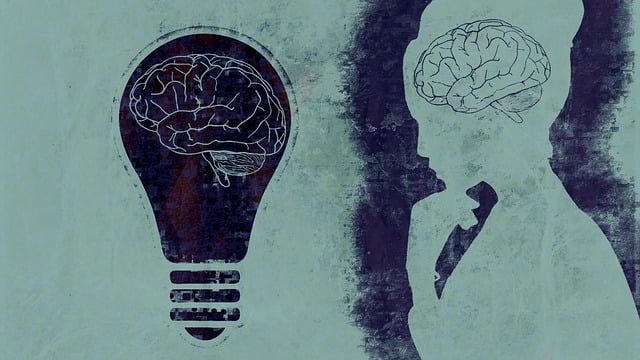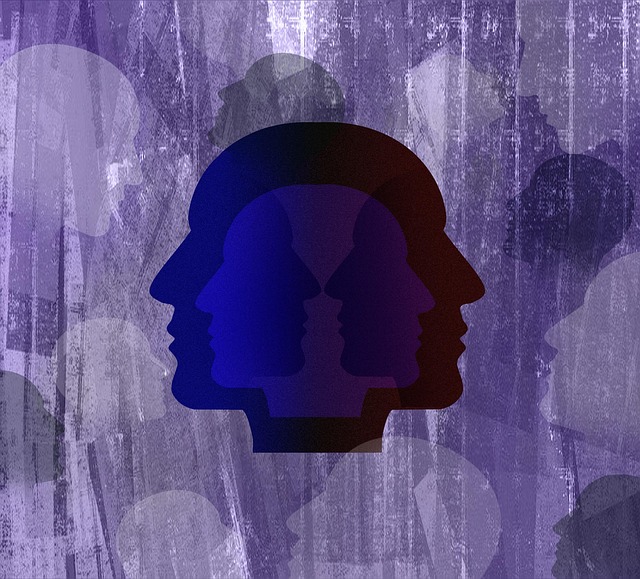Understanding mental wellness involves managing emotional, psychological, and social states through practices like mindfulness and self-care. In Lone Tree, spiritual-religious issues therapy offers a comprehensive approach, addressing beliefs and connections to build resilience and reduce stigma. This holistic method includes tailored sessions, risk assessments, and integration of personal growth, empowering individuals to navigate life's challenges with improved well-being and community support.
Mental wellness is the cornerstone of overall well-being, influencing our daily lives and interactions. This article explores various facets of promoting mental health, from understanding its foundational aspects to navigating spiritual-religious issues. We delve into effective strategies like therapy, emphasizing its role in fostering resilience. Additionally, it highlights holistic approaches integrating mind, body, and spirit, and the vital support roles communities play. Overcoming Lone Tree Spiritual-Religious Issues through these lenses paves the way for inner peace and enhanced mental wellness.
- Understanding Mental Wellness: The Foundation of Well-Being
- Overcoming Lone Tree Spiritual-Religious Issues: A Journey to Inner Peace
- The Role of Therapy in Promoting Mental Health and Resilience
- Integrating Mind, Body, and Spirit for Holistic Healing
- Cultivating a Supportive Community for Mental Wellness
Understanding Mental Wellness: The Foundation of Well-Being

Understanding mental wellness is the foundation for cultivating well-being. It involves recognizing and managing our emotional, psychological, and social state, encompassing everything from coping with stress to fostering positive relationships. Mental wellness isn’t merely the absence of diagnosed conditions; it’s a dynamic process that requires ongoing care and attention. Just as physical health necessitates regular exercise and nutritious food, mental wellness thrives through practices like mindfulness, self-care, and seeking support when needed, whether through therapy or spiritual guidance from Lone Tree’s diverse religious and spiritual communities.
This proactive approach to well-being is increasingly recognized for its role in depression prevention. By building emotional intelligence – the ability to understand and manage our own emotions and empathize with others – individuals can strengthen their resilience against mental health challenges. The production of mental wellness podcast series, for instance, offers accessible entry points into exploring topics like stress management, anxiety mitigation, and cultivating a positive mindset, reaching audiences who may find traditional therapy settings intimidating or inaccessible.
Overcoming Lone Tree Spiritual-Religious Issues: A Journey to Inner Peace

Many individuals struggle with Lone Tree spiritual-religious issues, feeling isolated and misunderstood due to conflicts between their faith and mental health challenges. This journey towards inner peace often involves complex emotions and unique obstacles. Therapy plays a pivotal role in helping folks navigate these complexities by providing a safe space for them to explore and process their thoughts and feelings. Through evidence-based practices tailored to address Lone Tree spiritual-religious issues, trauma support services can significantly reduce the mental illness stigma, fostering an environment of acceptance and understanding.
In addition to therapy, mental health professionals must be mindful of their own well-being, conducting regular risk assessments to mitigate burnout and ensure they remain equipped to offer optimal care. By integrating personal growth and spiritual exploration into therapeutic frameworks, mental illness stigma reduction efforts can be further strengthened, empowering individuals to embrace their whole selves—mind, body, and spirit—on the path to healing.
The Role of Therapy in Promoting Mental Health and Resilience

Mental wellness promotion heavily relies on a comprehensive approach that includes various therapeutic interventions. Lone Tree Spiritual-Religious Issues Therapy plays a pivotal role in fostering mental health and resilience by addressing individual beliefs, values, and spiritual connections. This form of therapy provides a safe space for individuals to explore their emotions, gain insights into their thinking patterns, and develop healthier coping mechanisms.
Through tailored sessions, therapists help clients enhance self-awareness, build strong social skills (Social Skills Training), and cultivate mind-over-matter principles that empower them to navigate life’s challenges. A thorough risk assessment for mental health professionals is essential to ensure the safety and well-being of both the client and therapist during these transformative processes. By integrating spiritual elements into therapy, Lone Tree Spiritual-Religious Issues Therapy offers a holistic approach that strengthens mental resilience, thereby enhancing overall wellness.
Integrating Mind, Body, and Spirit for Holistic Healing

In the pursuit of mental wellness, a holistic approach that integrates mind, body, and spirit is increasingly recognized as essential. This means going beyond mere treatment of symptoms and addressing the interconnectedness of our psychological, physical, and emotional states. For instance, Lone Tree’s spiritual-religious issues therapy encourages clients to explore their inner selves, fostering resilience through meaningful practices. By integrating mindfulness, movement, and reflection, individuals can tap into a profound sense of healing that transcends conventional therapy methods.
Resilience building is facilitated through various means such as mental wellness journaling exercises and community outreach program implementations. These activities not only provide guidance in navigating emotional challenges but also cultivate a deeper connection with oneself and others. Incorporating spiritual practices into one’s routine can offer a sense of purpose, calm, and clarity, ultimately contributing to enhanced mental wellness.
Cultivating a Supportive Community for Mental Wellness

Building a supportive community is vital for promoting mental wellness, especially in areas where access to professional services might be limited, such as rural or remote locations. This can take many forms, from creating safe spaces where individuals can share their experiences and connect with others going through similar struggles, to organizing group activities that foster a sense of belonging and purpose. Lone Tree spiritual-religious issues therapy groups, for instance, have been shown to significantly enhance mental health outcomes by providing a supportive network.
Incorporating trauma support services, confidence-boosting initiatives, and burnout prevention programs within these communities can further strengthen their impact. By addressing specific challenges like past traumas or chronic stress, these initiatives empower individuals to take charge of their mental well-being. A strong support system also encourages people to seek help when needed, breaking down barriers often associated with seeking therapy, whether it’s due to stigma or lack of awareness.
Mental wellness is a multifaceted concept that requires a holistic approach, integrating mind, body, and spirit. As discussed in this article, understanding mental wellness as the foundation of well-being is crucial. Overcoming Lone Tree spiritual-religious issues can be a significant step towards inner peace. Therapy plays a pivotal role in promoting mental health and resilience, while cultivating a supportive community further enhances overall mental wellness. By embracing these strategies, individuals can achieve a more balanced and resilient state of being.











